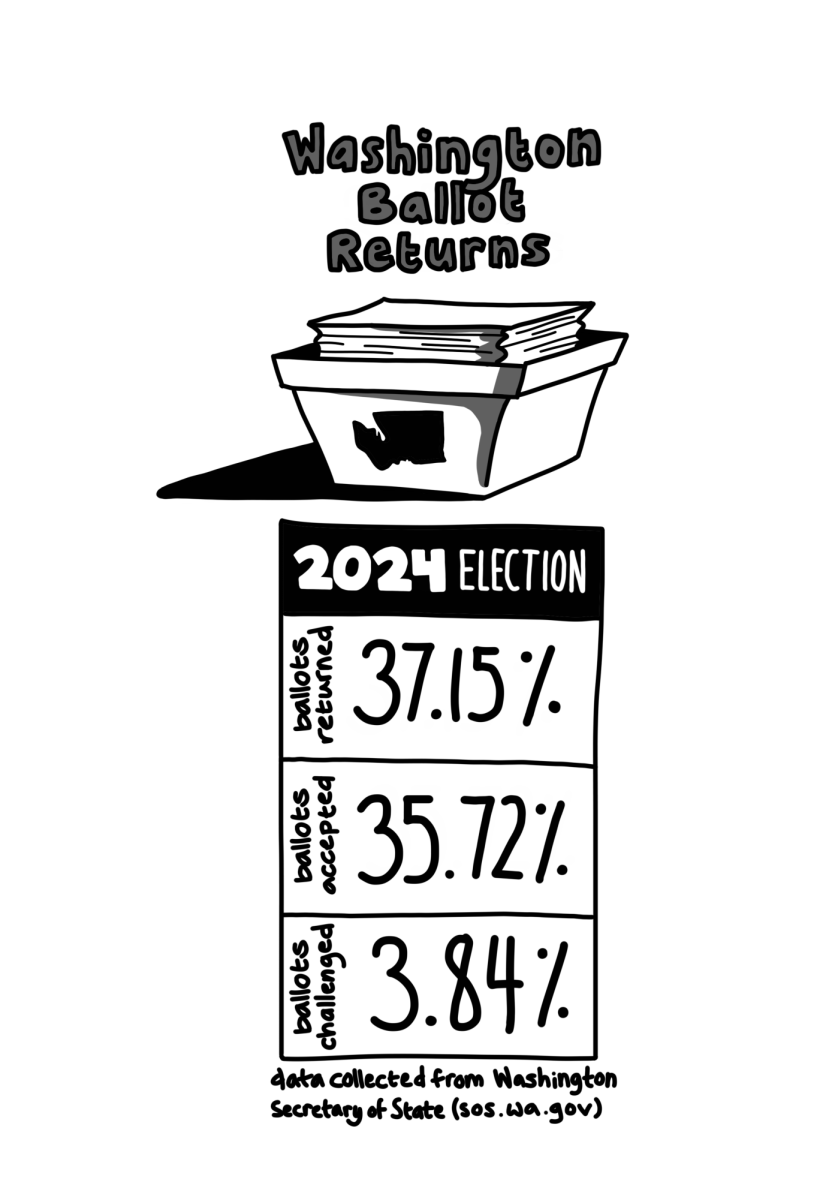 On September 24, 2009, the Sustainable Endowment Institute released its annual College Sustainability Report Card that gave Whitman a C. To compare, Reed College got a C plus, Grinnell got a B minus, Pomona got a B, Carleton got an A minus, Oberlin got an A minus, and the University of Washington got an A minus.
On September 24, 2009, the Sustainable Endowment Institute released its annual College Sustainability Report Card that gave Whitman a C. To compare, Reed College got a C plus, Grinnell got a B minus, Pomona got a B, Carleton got an A minus, Oberlin got an A minus, and the University of Washington got an A minus.
The institute sent out surveys and questionnaires to the administrators of 300 different schools asking for information over how the school deals with issues such as school administration, climate change, recycling, green buildings, student involvement, transportation, endowment transparency, investment priorities, and shareholder engagement.
Whitman’s administrators are well aware of this report.
“We certainly look at it but we don’t necessarily agree with everything, but it certainly points out some things that we could do better,” said Peter Harvey, Whitman’s Treasurer and Chief Financial Officer.
Asked for one example where the administration disagrees with the report’s assessment, Harvey cited the report grading Whitman a D in the transportation category.
“Well I think their transportation assessment isn’t very fair; it doesn’t recognize that we’re a non-commuting campus. To me we encourage bike riding. We don’t encourage parking. We have very few parking spaces. Our students all live within a few blocks of campus; we provide 70% of housing for our students so our students don’t have to commute,” reiterated Harvey.
So, the criteria that the report adopts could be biased. The way the report’s grade is done is each school is assigned a letter grade that corresponds to their GPA. Then, these 9 categories are averaged to get the college’s grade. Whitman received C’s and B’s in every category except transportation, endowment transparency, and shareholder engagement. In those categories, the college got a D, and two Fs.
One of thing main issues the college has with the report is the equal weight given to endowment transparency and climate change and energy. For one thing, sustainability can be redefined to justify why the college looks primarily for a high rate of return on its investments rather than the nature of those investments themselves.
“One way the college is ensuring its sustainability is through the endowment, and investing in that to guarantee the longevity of the college makes us an institution that is likely to be around for a long time,” said Jed Schwendiman, Associate to President George Bridges. One thing the report didn’t take into account was the wind farms nearby on Whitman land which the college could claim credit for fostering renewable energy.
The question remains however why Whitman is graded lower than many of its peer institutions. Another reason could be the methodology of the report. The institute gathers information by sending our questionnaires to college administrators, and the way the administrators answer the report’s questions can determine the grade their college receives.
“Well I looked at some other colleges, it seemed to me that in the transportation category and the endowment category that they just talked about it in a different way,” said Schwendiman. It’s unknown if merely answering questions in another fashion can solely account for Whitman’s lower sustainability grade however.
The report gives equal weight to the categories the college has direct control over such as its transportation and green building policies and the endowment categories which concern what kind of investments the college chooses to make.
Whitman does not invest in specific companies but rather invests in broader more diversified funds that other managers run rather than Whitman’s own administrators. The Sustainable Endowment Institute rewards colleges that make it a priority to invest in green mutual funds or companies.
“If Obama gets elected, and we start going as we should on alternative energy, there could be gobs of green jobs. There’s no reason why green mutual funds shouldn’t make even more money than regular old automobile oil companies,” said Professor of Geology and Environmental Studies Bob Carson.
Until it becomes true that green funds are the most profitable, the college will continue to look for the best bargain. Ultimately, the college’s first priority is to provide for the education of its students ahead of other worthwhile endeavors.
“Our responsibility is to have a diversified portfolio that generates a consistent rate of return that we can put to our scholarship program and our faculty program that makes it affordable for our students,” said Harvey.







